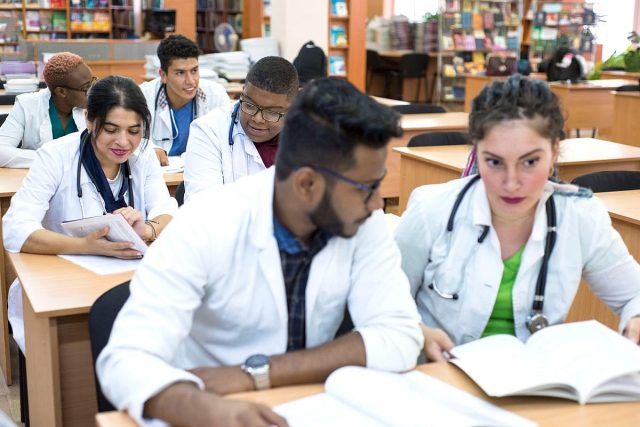Highest odds of attrition were seen among LGB Hispanic male and female students
By Lori Solomon HealthDay Reporter
WEDNESDAY, June 11, 2025 (HealthDay News) — Medical school attrition rates are high among lesbian, gay, or bisexual (LGB) medical students, according to a research letter published online June 10 in JAMA Network Open.
Mytien Nguyen, from the Yale School of Medicine in New Haven, Connecticut, and colleagues examined attrition rates at the intersection of sexual orientation, race, ethnicity, and sex among a national cohort of medical students. The analysis included 2014 to 2017 data from the Association of American Medical Colleges data warehouse (83,342 matriculants and 56,031 respondents to the Matriculating Student Questionnaire [MSQ]).
The researchers found that attrition rates were higher among MSQ nonrespondents (3.8 versus 2.6 percent). Complete demographic data were available for 80.8 percent of respondents (51 percent female; 19 percent identifying as Asian, 6.2 percent as Black, 6.2 percent as Hispanic, 57.9 percent as White, and 10.5 percent as other race and ethnicity; 6.3 percent identified as LGB). Overall, 2.5 percent of matriculants left school. A higher proportion of bisexual (4.2 versus 2.4 percent; adjusted odds ratio [aOR], 1.99) and gay and lesbian (3.7 versus 2.4 percent; aOR, 1.47) students left school compared with non-LGB students. When adjusting for Medical College Admission Test scores, non-LGB Asian, Black, and Hispanic male; LGB White female; and LGB Hispanic male and female students were more likely to leave school compared with non-LGB White students. The highest odds of attrition were seen among LGB Hispanic male and female students (aORs, 3.11 and 3.52, respectively).
“Examining medical school attrition rates among marginalized identities and contextualized experiences at the intersection of these identities is essential to developing support services that empower student success,” the authors write.
Copyright © 2025 HealthDay. All rights reserved.



















